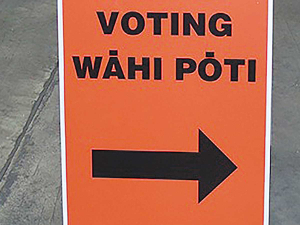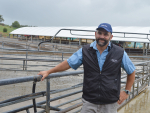OPINION: ACT's recent 'rural heartland' odyssey has shed some interesting new light on what issues concern voters in the provinces.
One might have thought that rising farm input costs, lower export product prices and regulation might have been front and centre to put to politicians. It could be argued that these are still festering sores for farmers or that they have given up compaining, feeling their calls for help will fall on deaf ears or get misinterpreted by non-farming officials.
But if you accept former Feds leader and ACT candidate Andrew Hoggard's observations of the meetings that he and his colleagues have run in the smaller rural towns, then the urban-rural divide is something of a myth. The fact that crime, cost of living (and that would include inflation) and education - not to mention co-governance - are tops for them is insightful.
People of all ages in all parts of the country are feeling the pinch and desperately searching for someone or some organisation to change this.
The election is seen as the pathway to change, be it a new government or new policies by the existing administration.
The high price of fruit and vegetables is an issue no matter where you live, yet let's remember that a crop failure every seven or so years is the norm and prices go up as supply dwindles.
Also, as a nation we are hooked on eating out of season, meaning we expect tomatoes and other fruit and vegetables to be at the same low price year-round and that simply isn't possible. The Europeans eat seasonally - we don't.
But that still does not take away from the fact that people in rural areas are as worried about the big national issues as those in urban areas. Rural crime gets little mention in the media, yet it affects people's lives and businesses.
Or are the messages from the people who attended the ACT meetings a direct result of the widespread media coverage of crime and other societal ills? There are other sensitive issues in the mix as well.
Perhaps the most interesting number in the current polls is the number of undecided voters - people looking for answers which have not been given. Which party is leading in the current polls is interesting, but what will be more defining is when the number of undecided voters decreases and how these are apportioned.
And of course, how will rural NZ vote!


















